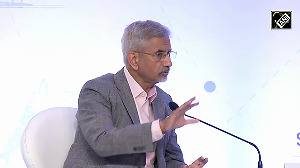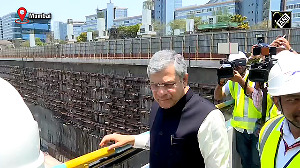China tacitly acknowledged on Thursday that it will build two new nuclear reactors in Pakistan in a deal that could re-ignite persistent concerns about proliferation and safety of atomic materials in the restive South Asian nation.
After comments made by China National Nuclear Cooperation (CNNC) that it would build at least two new 650 MW reactors at Chashma in Pakistan, a foreign ministry spokesman said the two countries had been cooperating in the field of nuclear energy, without referring to the report. Jiang Yu, affirmed that Beijing's cooperation with Islamabad in the field of nuclear energy was in consistence with international obligations under International Atomic Energy Agency's supervision.
Jiang said that this cooperation respects international obligation for peaceful use of nuclear energy and accepts IAEAs regulations and supervision. The Chinese spokesman did not directly refer to financing of the two new reactors. Under the new agreement China is proposing to build two more reactors in Chashma, located on the outskirts of Rawalpindi. Beijing already has built a nuclear reactor at the spot in 1991 and is nearing completion of the second reactor, work on which began in 2005, Financial Times reported.
The paper said the decision to supply reactors to Pakistan, which has a nuclear arsenal and a record of dealing with rogue states like North Korea, Libya and Iran, reflects Beijing's growing diplomatic confidence. "It also reflects Beijing's ambition to become a global supplier of nuclear energy and underscores its views of Pakistan as a prized South Asian strategic partner. The paper quoted a Pakistani government official as saying, "Our Chinese brothers have once again lived up to our expectations. They have agreed to continue to cooperate with us in nuclear energy field." The CNNC said on its website that the two governments had signed an agreement to finance the construction of the two reactors in February.
The Shanghai Nuclear Engineering Research and Design Institute said it had been hired to design the two reactors. The Financial Times quoting Western diplomats in Islamabad said that the US was likely to accept China's growing role as a supplier of nuclear power to Pakistan. The confirmation of Chinese assistance in building to more reactors in Pakistan comes even as the country's President Hu Jintao recently told a nuclear summit in Washington convened by US President that Beijing formally opposes nuclear weapon's proliferation, while backing its civilian uses.
The Washington summit was held in the backdrop of US concerns over security of fissile material in Pakistan where Al Qaeda and Taliban militants are trying to clandestinely acquire these weapons. Mark Hibbs, senior associate at the United States Carnegie Endowment for International Peace and Nuclear Policy Programme said that China had decided to go ahead with the deal because "for political reasons it felt Pakistan should be compensated in some way for the US-India nuclear deal."
"After the dust settled on the US-India nuclear deal, China gravitated towards a position that it will support nuclear commerce if it benefits Chinese industry," he said in his analysis posted on the Carnegie website. He said the Obama administration could well not oppose China's new nuclear deal with Pakistan because it wanted to keep Pakistan engaged in Afghanistan and gain Chinese support over Iran's nuclear programme. He also said the US would find it difficult to oppose China's support for Pakistan after signing the US-India civil nuclear agreement.
Western diplomats in Islamabad said the US was likely to accept China's growing role as a supplier of nuclear power to Pakistan, Financial Times reported. "As long as China is not arming Pakistan with nuclear bombs, this kind of co-operation helps to deal with Pakistan's frustration over not securing a civil nuclear agreement with the US," said one western official. "It's not a perfect outcome," it said.







